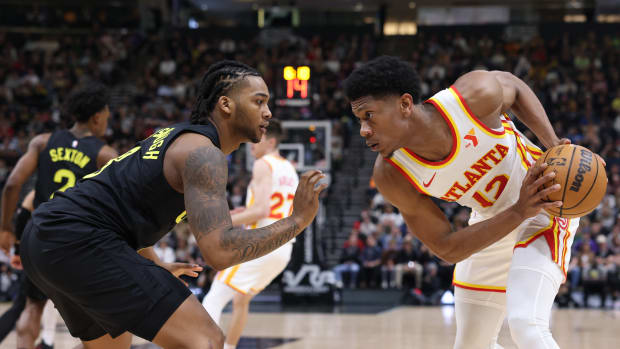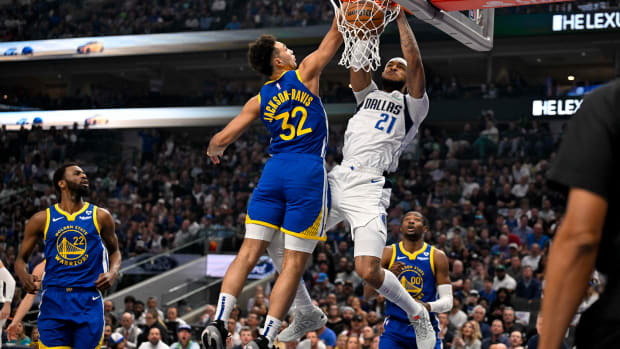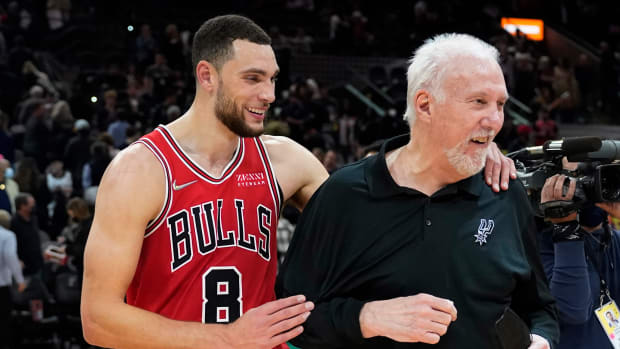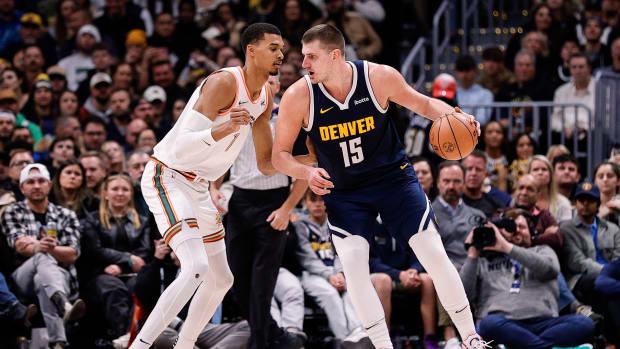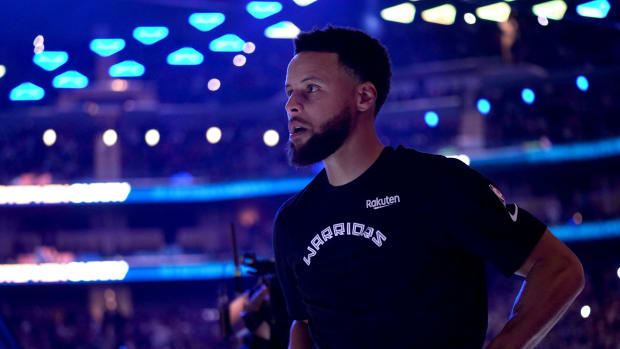Rockets Hold Off Warriors for Series-Saving Overtime Win in Game 3
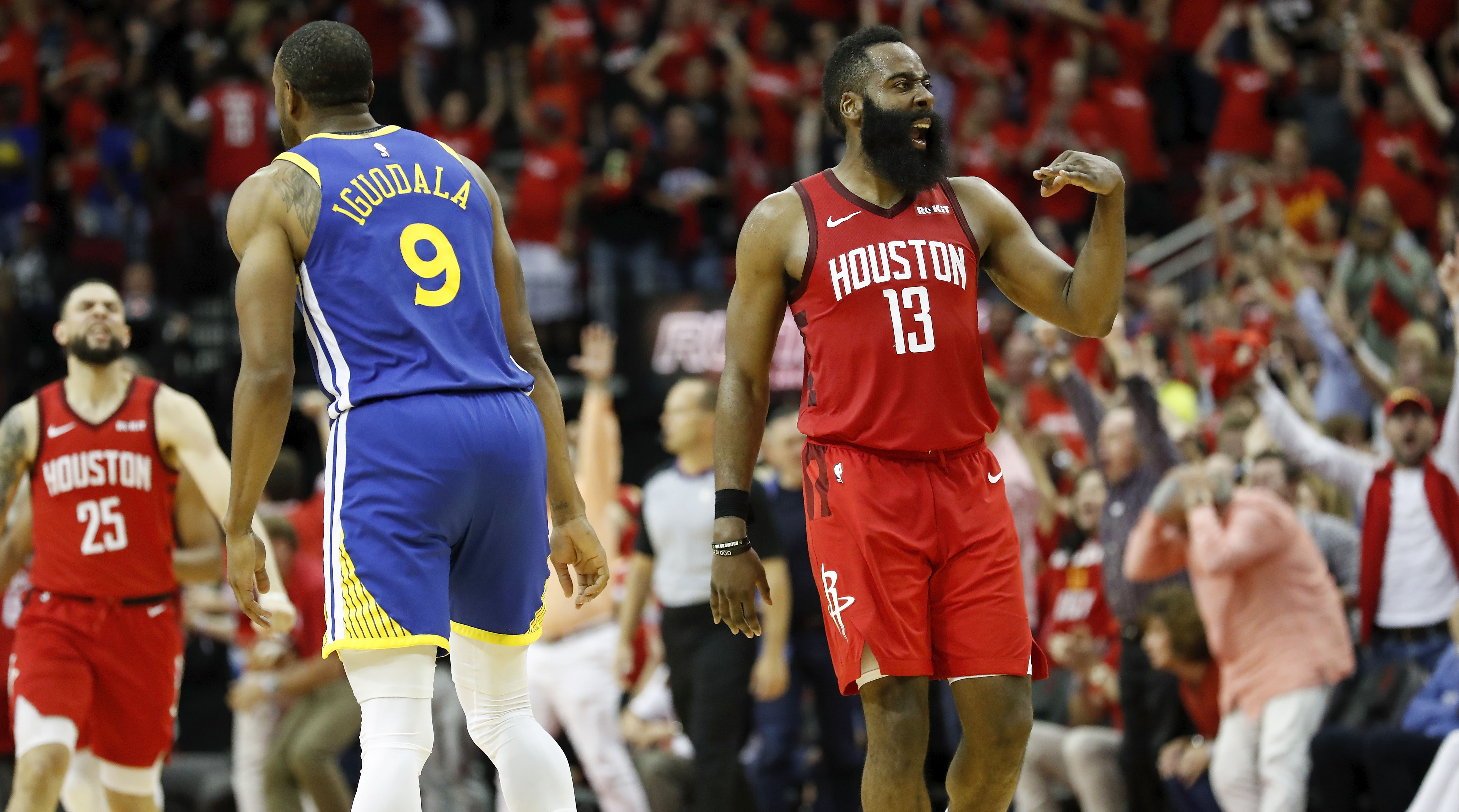
HOUSTON –– There is an agony to playoff basketball that plays out in real time, one that makes the competition an act of survival. It is unmistakable; there are teams that play well and those that play hard, and somewhere in a different state of consciousness altogether are those who see the work of an entire season hanging in every possession. In a pivotal Game 3, the Rockets showed just that sort of verve. Had Houston lost even a single loose ball or lost focus for even one more possession, this series—and its season—would be effectively over. Instead, the Rockets gutted out a 126-121 overtime win for the sake of all they had built.
You have reached your limit of 4 premium articles
Register your email to get 1 more
“No team has ever came back down zero-three,” P.J. Tucker said. “So we’re at home, it’s a must-win game for us. Every game is a must-win for us. We have to play like them. We have to play like them. Every single possession, fight for every possession, fight for every 50-50 ball, fight for everything, everything, the whole game. We have to do it the entire game if we’re going to beat them.”
There was no better avatar for Houston’s urgency. When the Rockets turned to small lineups for fear that their centers would be exploited, Tucker took to the boards like a wrecking ball. No combination of Warriors seemed able to keep him off the boards. It’s challenging enough for a defense to protect itself from the drives of James Harden. Even when Golden State managed, Tucker would charge its back line to clean up any misses. His seven points, 12 rebounds (including five on offense) and three assists could not have been more vital. Tucker’s night was an act of basketball heroism hidden in the stat line of a role player, made possible by his uncommon urgency.
“That was the biggest indicator of the difference in the physicality and the competitiveness,” Warriors coach Steve Kerr said. “They played like a team down 2-0. They knew they had to win this game and they brought the competitive fire. We played okay.” For that, the Rockets deserve credit. No playoff win would be complete without a few fortunate breaks, and Houston got its share. Stephen Curry had a nightmare performance, featuring four missed layups and—in the game’s last gasp—a bricked dunk. Houston squandered a great chance to put the game away at the end of regulation, botching the possession so thoroughly as to not even attempt a game-winning shot in time. Kevin Durant dealt 46 points worth of body blows, but it could easily have been 48 or 50. Iman Shumpert and Austin Rivers combined to make five three-pointers—one more than Curry and Klay Thompson.
When things went wrong, the Rockets didn’t dwell. Their night was a miracle of response—an effort to repel run after run after run from the most dangerous opponent in the league. Whenever it seemed that the Warriors had finally wrested away control of the game, Tucker, Harden or Eric Gordon would break serve with a gutsy play. ”All night, they hit timely shots,” Durant said. “When we cut the lead from 10 to seven to six, they came back down and hit a three or got an offensive rebound.” It was a solo exhibition from Durant that ultimately closed the gap early in the fourth quarter, though even his best efforts were ultimately rebuffed by Houston's desperation.
At times, Harden seemed to will himself to the rim—yo-yoing Andre Iguodala back and forth as he slowly gained ground inside the arc. This was the most precise game yet from the MVP hopeful, clearly informed in the break between games of how he could better leverage his drives. Harden’s ventures felt less like ambling and more like active problem solving, and they resulted in 41 points and six assists—including a step-back three to put the game away. The more the defense overreacted to Harden, the more open shots it seemed to give Gordon, who scored 30 of his own by way of seven three-pointers.
There had never been any question as to whether the Rockets were playing hard in this series. The entire affair had been a grind from the start. It wasn’t until Game 3, however, that Houston finally had a say in how the basketball in this series was actually played. To not only fight, but fight to establish the rules of engagement. It’s in the trenches of a game that teams battle to control the pace. It’s through their play-by-play approach that they exert pressure. “In order to beat them, playing hard ain't enough,” Chris Paul said. “You've gotta play smart.”































